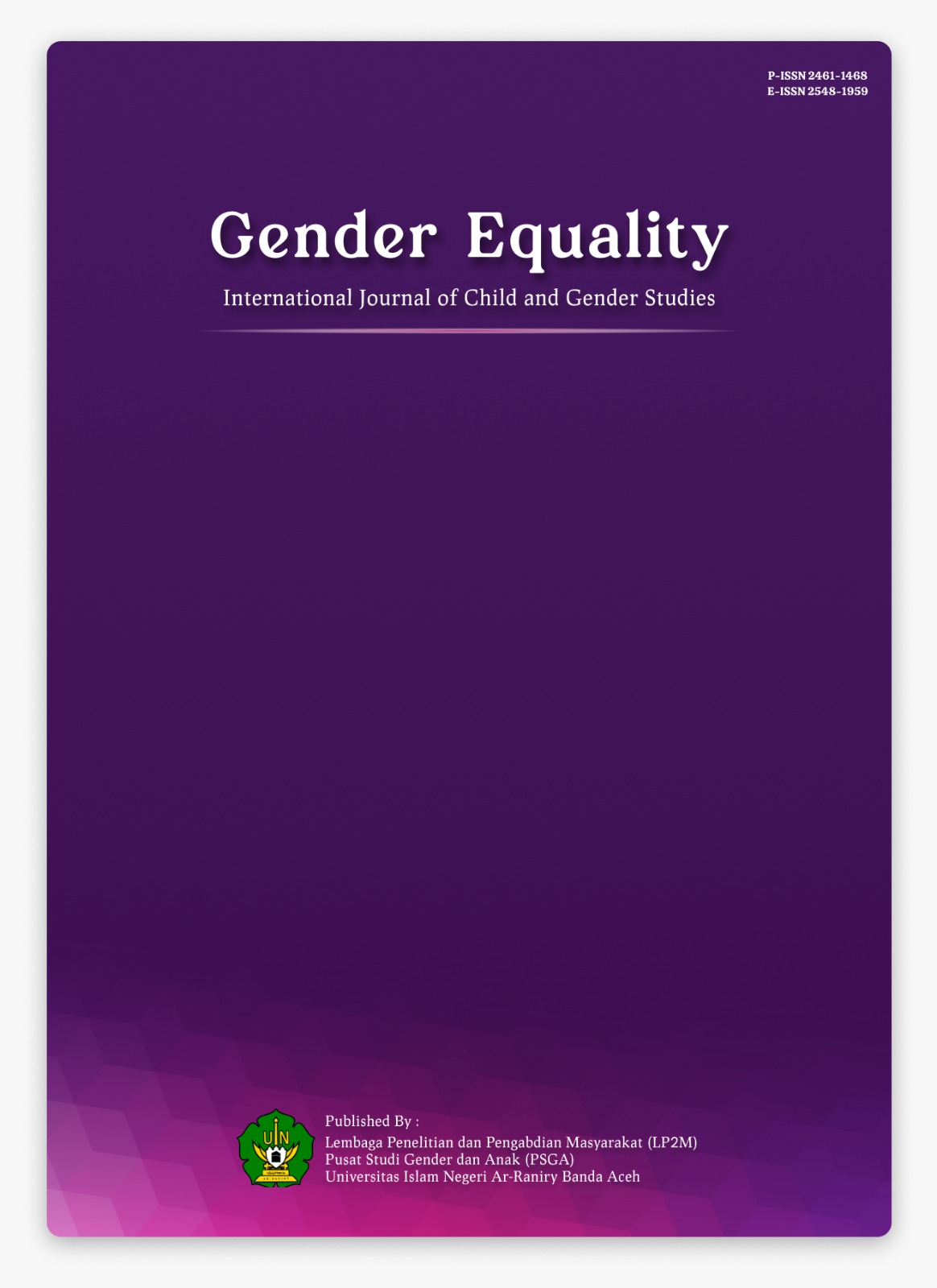Harmonizing law and faith: The validity of female instrumentaire witnesses in notarial deeds and the principle of gender justice
DOI:
https://doi.org/10.22373/equality.v11i2.31950Keywords:
Notarial Deed, Instrumentaire Witness, Al-Baqarah 282, Islamic Law, Gender in TestimonyAbstract
The issue of female instrumentary witnesses in notarial deeds is significant due to differing perspectives between Indonesian positive law and Islamic law. The Notary Office Act (UUJN) does not differentiate witnesses based on gender, as long as they are adults, legally competent, and independent. In contrast, some classical Islamic views consider women’s testimony in muamalah matters to be worth half that of men, as stated in Surah Al-Baqarah verse 282. This raises questions regarding the validity of notarial deeds involving female instrumentary witnesses. This study employs a normative juridical method with a conceptual approach through library research, including UUJN, the Qur’an, classical exegesis, and academic literature. The analysis is qualitative with deductive reasoning, comparing positive legal norms and Islamic law, while also interpreting their relevance through the principle of maqashid al-shari‘ah. The findings show that under Indonesian positive law, a notarial deed remains valid even with female witnesses, since the key requirement lies in legal competence rather than gender. Meanwhile, classical Islamic law restricts women’s testimony, but contemporary interpretations grounded in maqashid al-shari‘ah emphasize justice and equality, thereby granting women equal standing in giving testimony. In conclusion, the use of female instrumentary witnesses in notarial deeds does not contradict Indonesian positive law or contemporary Islamic legal principles. This study highlights the importance of harmonizing national law and Islamic law so that Indonesia’s legal system can be more responsive to justice and gender equality values.
References
Adi, P. B. (2020). Perlindungan hukum terhadap saksi instrumenter dalam pembuatan akta notaris [Thesis, Universitas Islam Indonesia]. https://dspace.uii.ac.id/bitstream/handle/123456789/28278/16921037%20Baihaqy%20Prianto%20Adi.pdf?sequence=1&isAllowed=y
Alfani, I. H. D., Mukhsin, M., Khusnadin, M. H., Chodijah, S., & Luthfia, A. D. (2025). Qur’anic perspective of gender equality: Classical and modern tafsir. Gender Equality: International Journal of Child and Gender Studies, 11(1), 33-52. https://doi.org/10.22373/equality.v11i1.26296
Azizah, N. (2022). Pemikiran Nasaruddin Umar dan Henri Shalahuddin tentang hadis kesaksian wanita: Sebuah kajian komparatif. Jurnal Penelitian Ilmu Ushuluddin, 2(1), 113–128. https://doi.org/10.15575/jpiu.13608
Basri, H. (2018). Kesaksian perempuan dalam kontrak keuangan dalam kitab-kitab tafsir. Al Daulah: Jurnal Hukum Pidana Dan Ketatanegaraan, 7(2), 347-361. https://doi.org/10.24252/ad.v7i2.7247
Fanani, Z., & Ansori, A. I. (2024). Status dan kedudukan saksi perempuan dalam hukum Islam dan KUH Perdata. Jurnal At-Tahdzib, 12(1), 66–86. https://doi.org/10.61181/at-tahdzib.v12i1.373
Ikhsan, D., & Ismansyah, I. (2019). Peranan notaris sebagai saksi (syâhid) terhadap suatu perbuatan melawan hukum yang dilakukan pihak dalam akta notaris (Studi Perkara Nomor 269/Pid.B/2015/Pn.Pdg). Alhurriyah: Jurnal Hukum Islam (Alhurriyah Journal of Islamic Law), 4(1), 32-42. https://doi.org/10.30983/alhurriyah.v4i1.1438
Istiqomah, I. N., Sulistyarini, R. & Al-Uyun, D. (2024). Kedudukan saksi instrumen di pengadilan. Unes Journal of Swara Justisia, 8(1), 203–214. https://doi.org/10.31933/8fxk3695
Latif, H. (2020). Penafsiran ayat Al-Qur’an tentang kesaksian seorang lelaki dan dua perempuan dalam tinjauan maqashid shariah. Jurnal Ilmiah Al-Mu’ashirah, 17(1), 60-69. https://doi.org/10.22373/jim.v17i1.7906
Latif, A. H. (2019). Kesaksian dua perempuan dalam Al-Quran: Studi komparatif kitab tafsir. Jurnal Ilmiah Al-Mu’ashirah, 15(2), 122-131. https://doi.org/10.22373/jim.v15i2.5275
Maloko, T. (2021). Kedudukan perempuan sebagai saksi dalam Islam. Jurnal Sipakalebbi, 4(2), 425–432. https://doi.org/10.24252/jsipakallebbi.v4i2.18552
Negara, P. M. A. (2022). Keadilan gender dan hak-hak perempuan dalam Islam. Az-Zahra: Journal of Gender and Family Studies, 2(2), 74–88. https://doi.org/10.15575/azzahra.v2i2.15840
Orlando, G. (2022). Konsep gender pada saksi akta dalam pembuatan akta syariah oleh notaris di Kabupaten Labuhanbatu dalam perspektif hukum positif dan hukum Islam. Tarbiyah bil Qalam: Jurnal Pendidikan Agama dan Sains, 5(2). https://doi.org/10.58822/tbq.v5i2.67
Rahim, A & Bakry, K. (2020). Studi komparasi kesaksian wanita dalam hukum pidana Islam dan hukum perdata Islam. BUSTANUL FUQAHA: Jurnal Bidang Hukum Islam, 1(1), 16–27. https://doi.org/10.36701/bustanul.v1i1.122
Rosidi, A., Zainuddin, M., & Arifiana, I. (2024). Metode dalam penelitian hukum normatif dan sosiologis (Field Research). Journal Law and Government, 2(1), 46-58. https://doi.org/10.31764/jlag.v2i1.21606
Siregar, L. R., & Irham, M. I. (2023). Dua banding satu: Perbandingan laki-laki dan perempuan dalam Al-Qur’an. Al-Adillah: Jurnal Hukum Islam, 3(2), 102–113. https://doi.org/10.61595/aladillah.v3i2.681
Ulumuddin, M. (2017). Kesaksian perempuan: Telaah terhadap status dan kedudukan perempuan dalam hukum Islam. EGALITA, 10(2). 1-12. https://doi.org/10.18860/egalita.v10i2.4548
Wiraguna, S. A. (2024). Metode normatif dan empiris dalam penelitian hukum: Studi eksploratif di Indonesia. Public Sphere: Jurnal Sosial Politik, Pemerintahan Dan Hukum, 3(3), 33-52. https://doi.org/10.59818/jps.v3i3.1390
Downloads
Published
Issue
Section
License
Copyright (c) 2025 Basri Effendi, Auzan Qasthary, Muhammad Akbar Angkasa, Chadijah Rizki Lestari

This work is licensed under a Creative Commons Attribution-ShareAlike 4.0 International License.
GENDER EQUALITY: International Journal of Child and Gender Studies allows the author(s) to hold the copyright and to retain the publishing rights without restrictions. Authors who publish with this journal agree to the following terms:
- Authors retain copyright and grant the journal right of first publication with the work simultaneously licensed under a Creative Commons Attribution License that allows others to share the work with an acknowledgment of the work's authorship and initial publication in this journal.
- Authors are able to enter into separate, additional contractual arrangements for the non-exclusive distribution of the journal's published version of the work (e.g., post it to an institutional repository or publish it in a book), with an acknowledgment of its initial publication in this journal.
- Authors are permitted and encouraged to post their work online (e.g., in institutional repositories or on their website) prior to and during the submission process, as it can lead to productive exchanges, as well as earlier and greater citation of published work.



